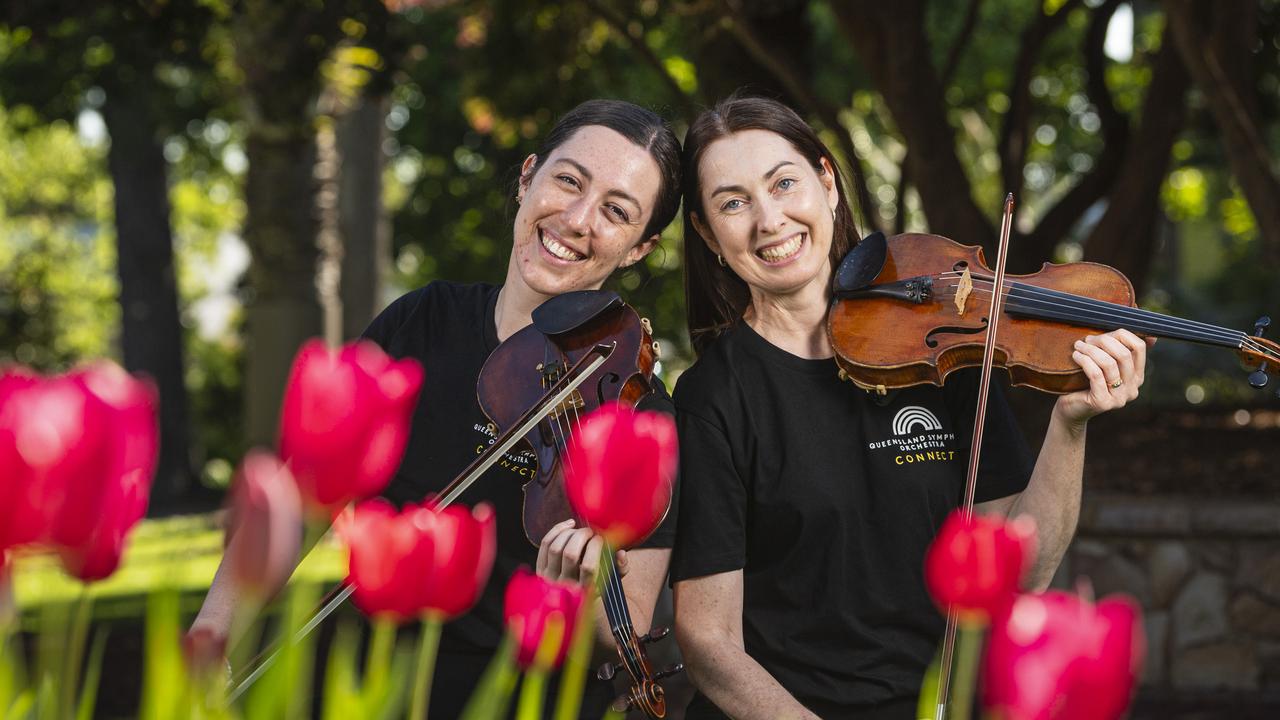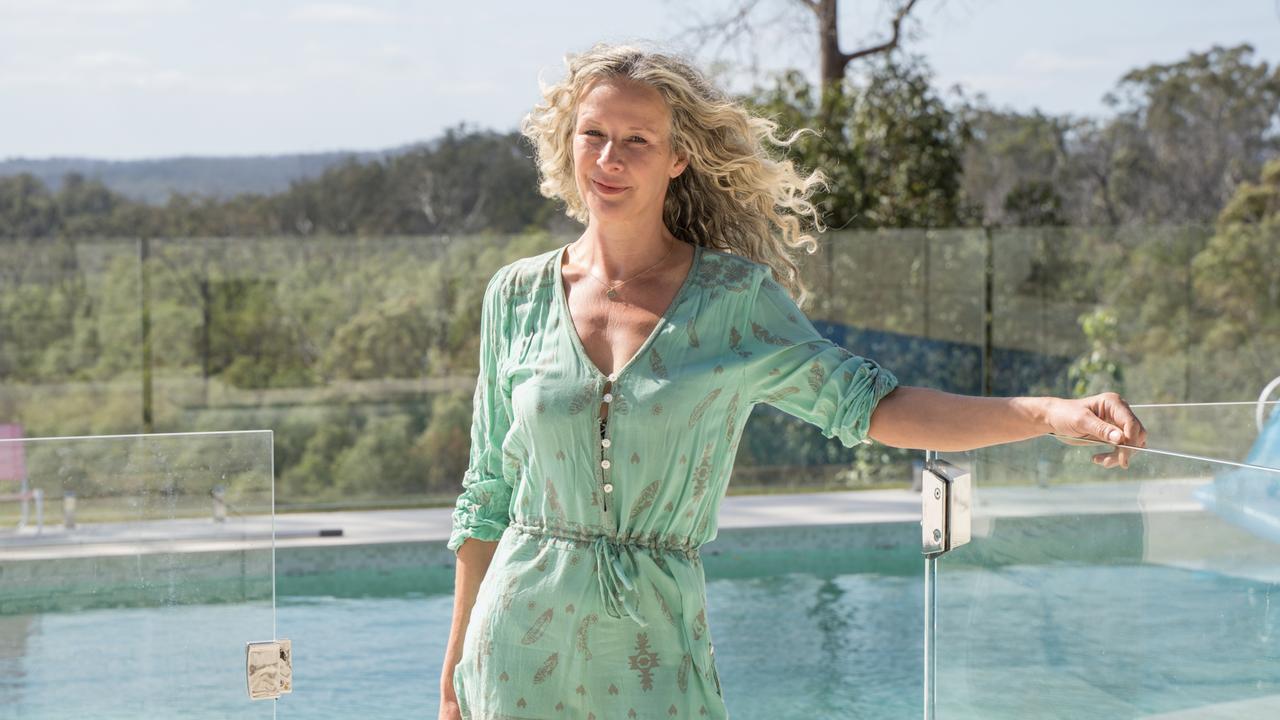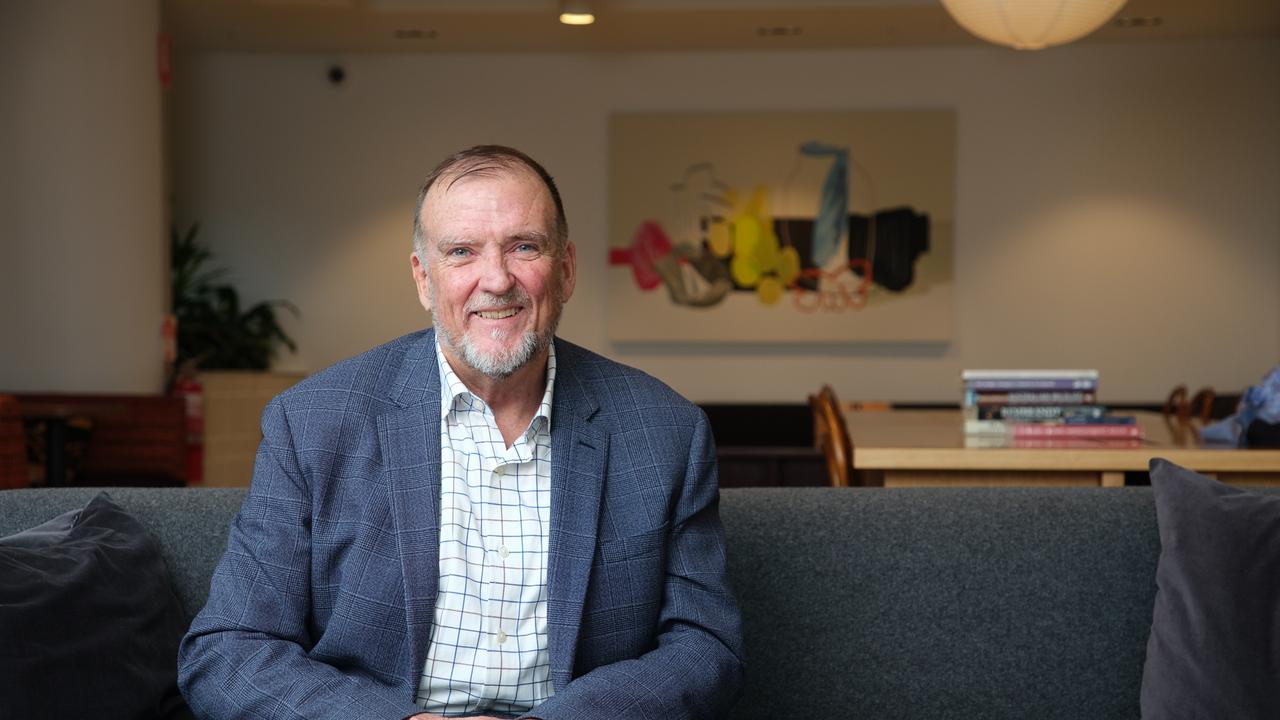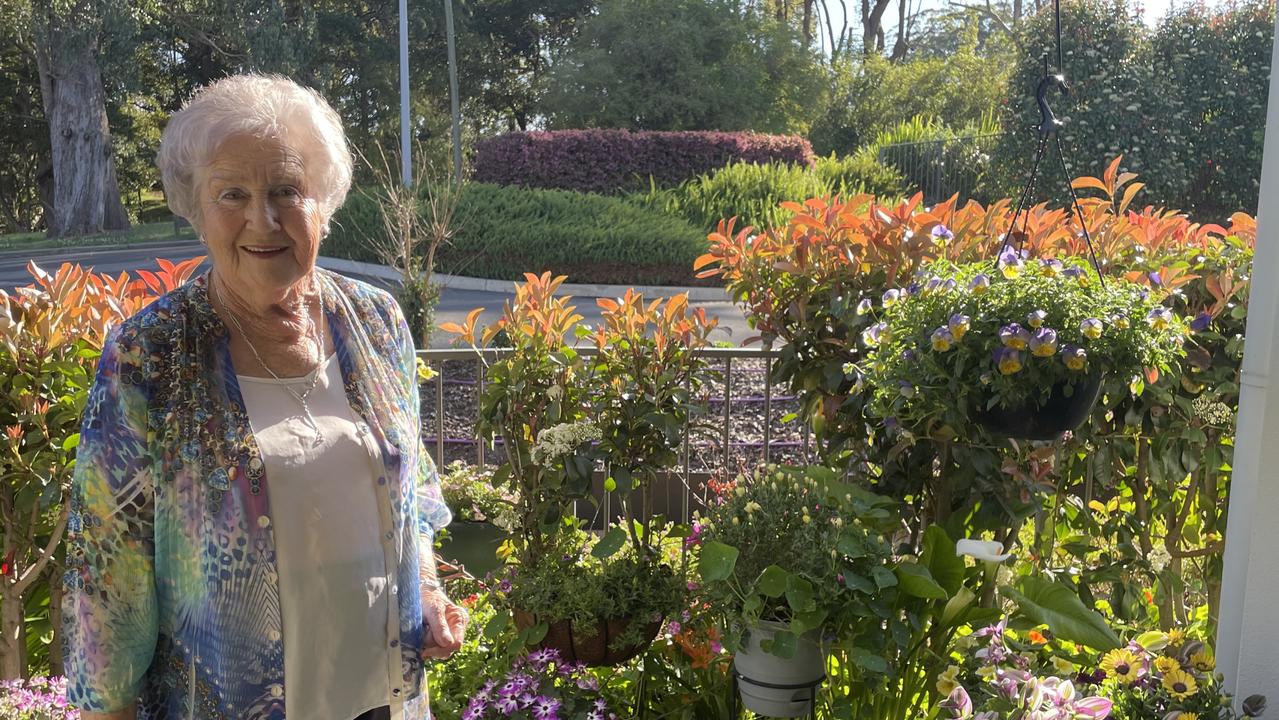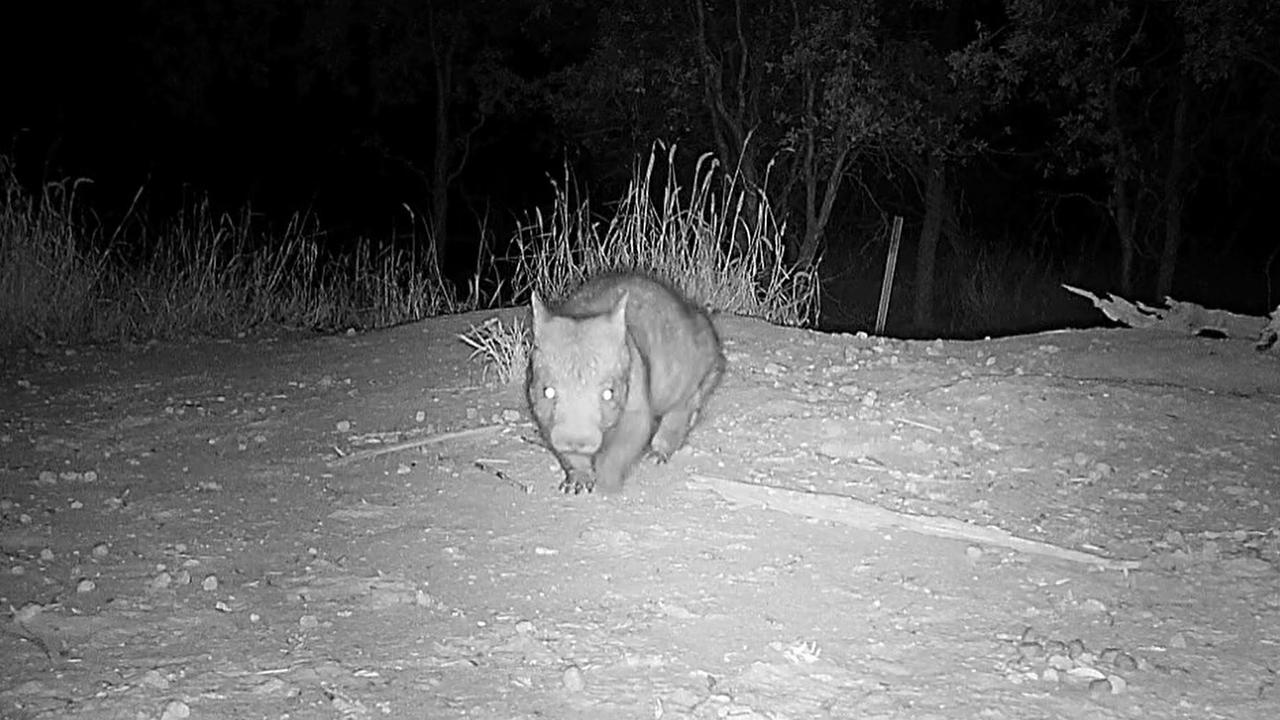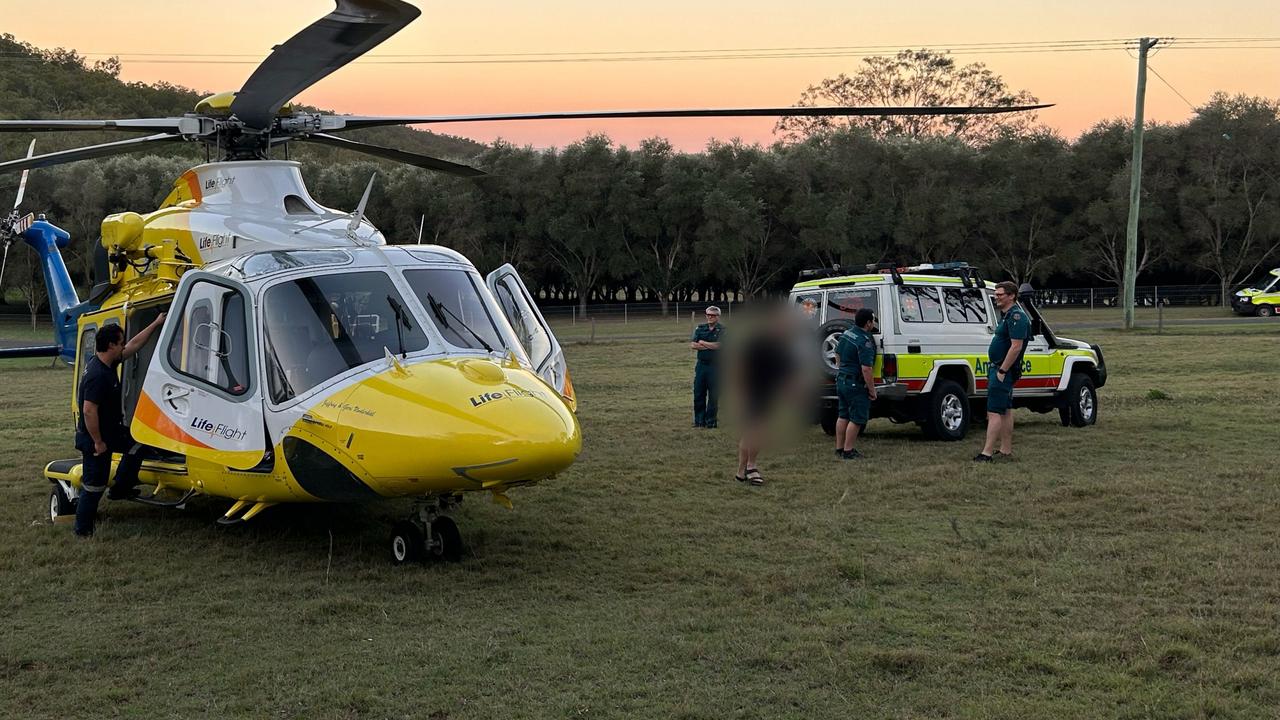Aunty Noeleen Dempsey, Uncle Wayne Fossey, Toowoomba NAIDOC leaders speak
Toowoomba’s First Nations’ community has shown pride of place at this year’s NAIDOC week, despite less than a year after the region recorded some of the highest no votes in Australia in the 2023 Voice Referendum.
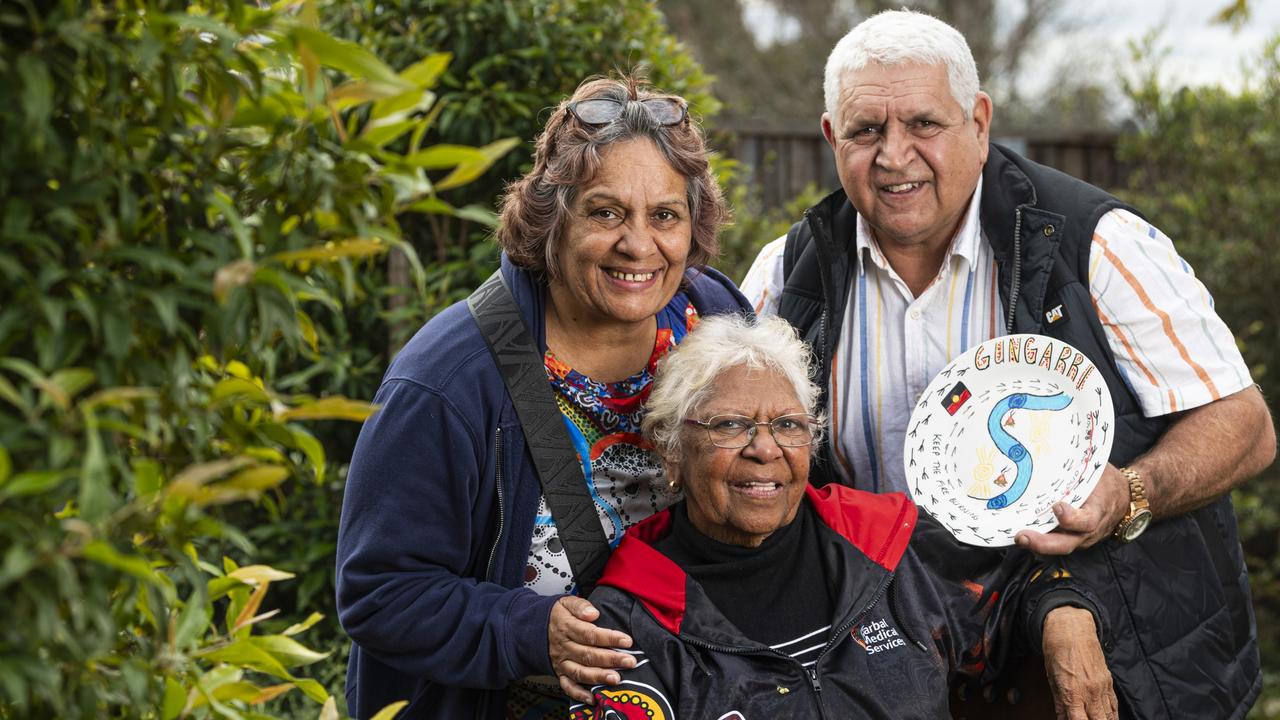
Community News
Don't miss out on the headlines from Community News. Followed categories will be added to My News.
Toowoomba’s First Nations communities have come out strong and proud this NAIDOC week to celebrate their achievements and culture and send a clear message – despite the No vote in last year’s Voice referendum, they are keeping the fire burning.
It has been nine months since Australia turned out to vote against the Indigenous Voice to parliament Referendum, with the region’s electorates of Maranoa and Groom recording the highest ‘no’ votes of the country.
Taking on this year’s NAIDOC theme ‘Keep the fire burning! Blak, Loud and Proud’, the Chronicle spoke to some of the leaders within the Garden City’s First Nations’ community.
Here’s what they had to say:
Aunty Noeleen Dempsey
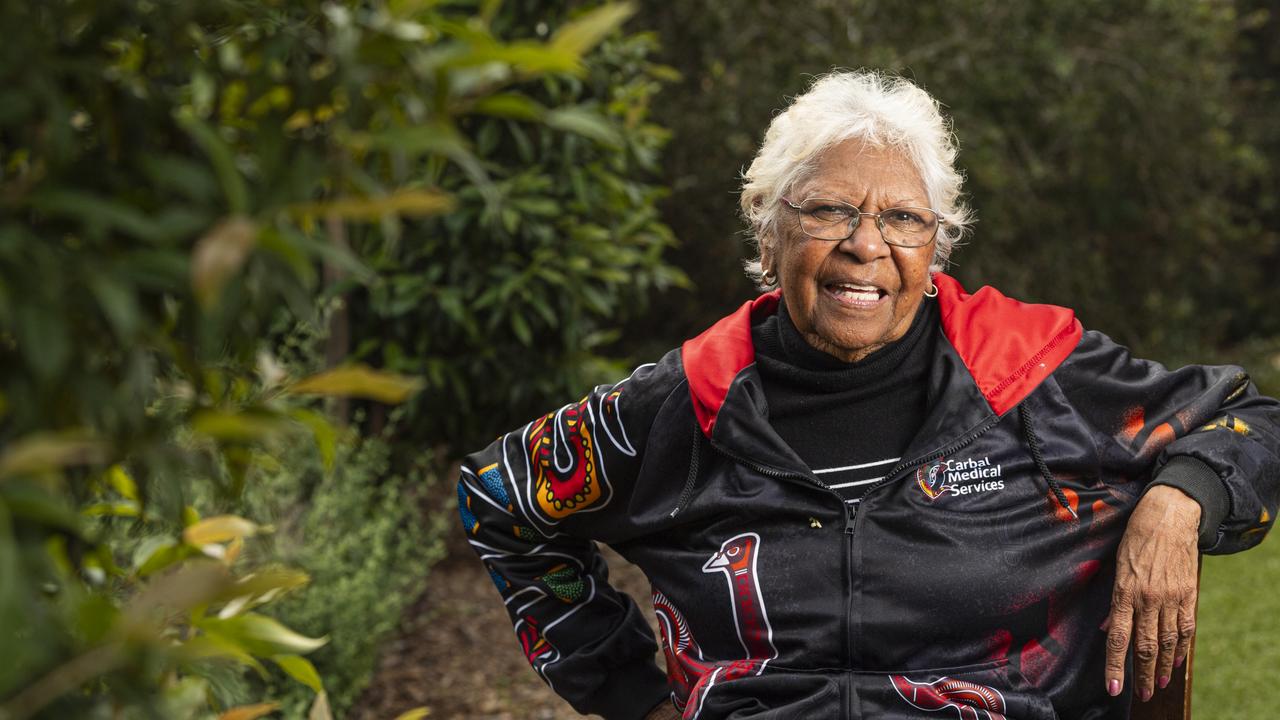
A Kalkadoon woman, long-time primary health care worker, Murri Court volunteer, and grandmother of nineteen, Aunty Noeleen Dempsey was awarded the Lifetime Achievement this year at the NAIDOC Awards.
After more than thirty years of working in health, she now volunteers in the Murri Courts and her message for NAIDOC week is to encourage the younger people.
“They’re the ones that need to keep the fire burning, because the elders have fought good fight and they’ve lift a legacy for the younger generation which they need to pick up the baton,” she said.
The referendum showed that non-Indigenous people in Australia didn’t accept making a change to the constitution, she said.
“There has to be recognition for Aboriginal and Torres Strait people belonging to this land,” Aunty Noeleen said.
The Stolen Generation split up families and sent them off to punishment places like Worrabinda, Cherbourg and Palm Island, she said.
“I believe the young people of today, they need to go and upskill themselves if they’re working,” she said.
“My thing is really to see the Aboriginal community flourish, and the only way you flourish is by learning, learning, learning, learning, learning.
“Get in there and learn as much as you can to make the Aboriginal and Torres Strait Islander community a better place for our kids and for all people to live.
“Aboriginal and Torres Strait Islander people, we have to pick ourselves up, we have to go on because our old people did that.
“They lived a hard life and so we have to remember what they did.
“We got to be the same, pick ourselves up, dust ourselves off, and walk forward.”
Uncle Wayne Fossey
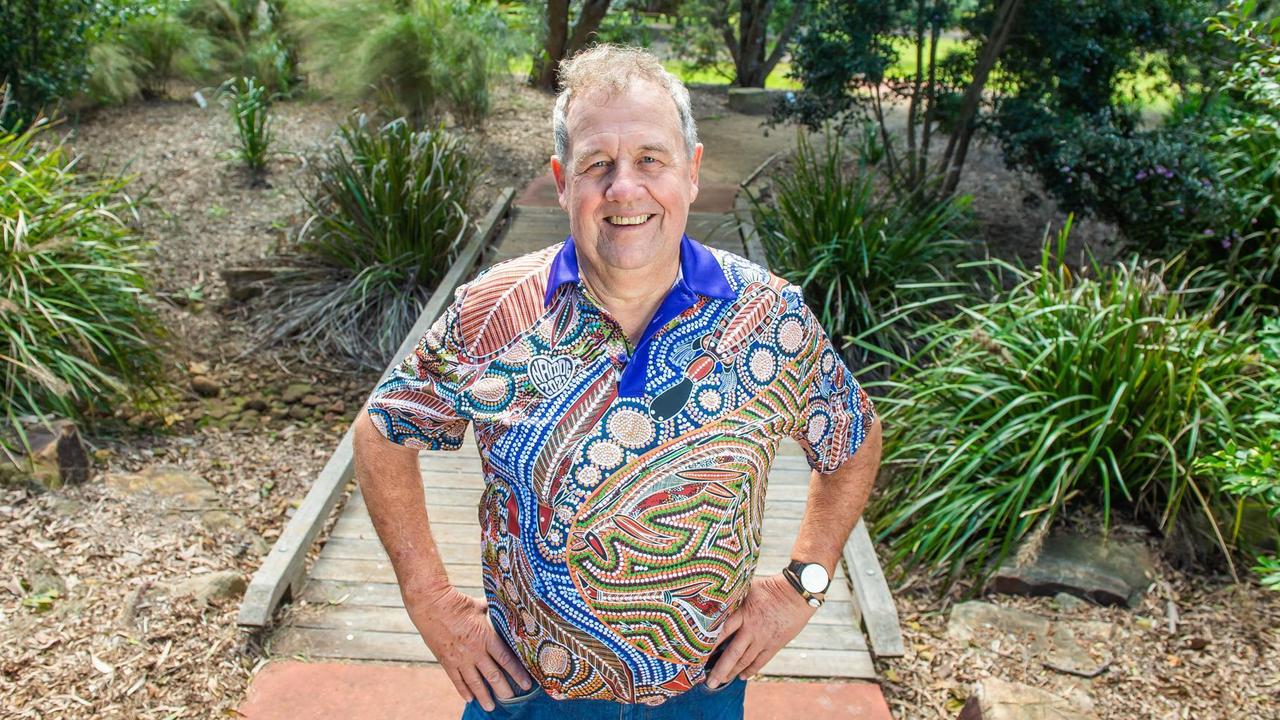
Darling Downs Indigenous leader Uncle Wayne Fossey said NAIDOC was time for celebration and an understanding of culture which extended beyond the one-week formalities.
This year’s theme of being ‘Blak, Loud and Proud’ was “exceptionally important since last year’s fiasco”, he said.
“The no votes was a bit of a shock and a bit of an embarrassment,” Uncle Wayne said.
“I think we were angry and in some ways and bitterly disappointed that the vote was so high in the region.”
In the October 2023 referendum 75.8 per cent of Toowoomba’s electorate in Groom voted against an Indigenous Voice to parliament, while the western neighbouring electorate of Maranoa voting a resounding 84 per cent no – the highest in all of Australia.
Uncle Wayne said “celebration and healing is the key component” and he saw growth and change certainly following, with more people listening rather than challenging.
“The way we do that is to look back at people from the past, people who have been our role models, and people who have been significant right across Australia in every single thing,” he said.
“Being loud doesn’t mean to say that you have to riot and carry on.
“It’s not just the people who are loud mouths, but those who have been around for some time.
“Many of us in the older generation in their ‘70s and ‘80s we are probably quieter and we’ve seen what being proud can achieve.
“For a long time it was our parents who were like that or our grandparents.
“We’re still here and we’re proud to say this is who we are, this is what we’re trying to achieve and there are multiple sides to it.”
Shannon Bauwens
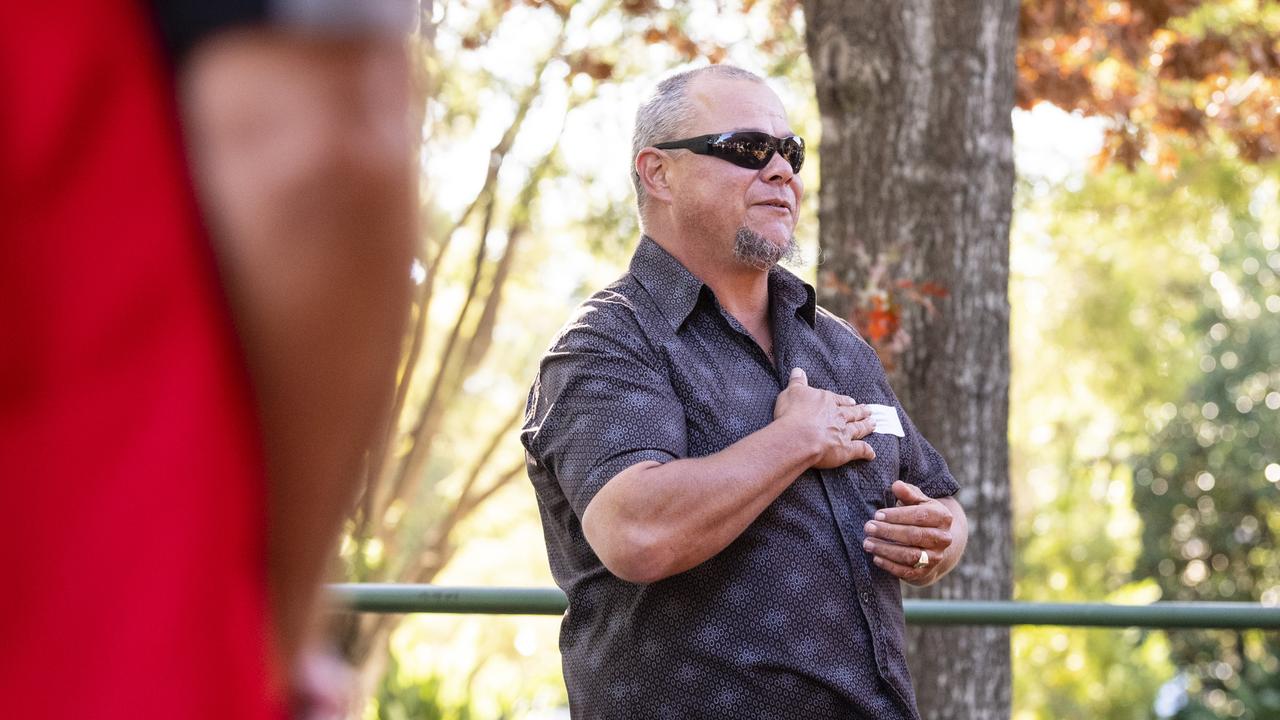
Bunya People’s Aboriginal Ranger Shannon Bauwens said keeping the fire burning was both part “metaphorical and physical”.
“We are lucky enough to be able to put fire back in country to heal country and at the same time heal ourselves,” Mr Bauwens said.
For the last seven years working as a ranger in the Bunya Mountains and surrounds, Mr Bauwens has seen first-hand how fire can re-transform landscapes.
“After European settlement there was a lot of introduced species,” he said.
“We’re not burning to eradicate those weeds, we’re burning to put resilience back into that ecosystem.”
There are many places which were infested with the weeds, where they could not even hear a bird before the fire management, he said.
“When we introduced the right fire back into the system we could start to hear birds return,” he said.
“I’ve seen health return to the country.”
In much the same way, he said, the fire is a metaphor for “identity, of who you are and what is required to keep the legacy of the old people who went through traumatic experiences and endured through those tough times”.
“And being proud of identity, of where we come from and how we connect to the country,” he said
“In order for the animal to be able to thrive you don’t just look after the animal you look after his whole.”
Damon Miri Anderson
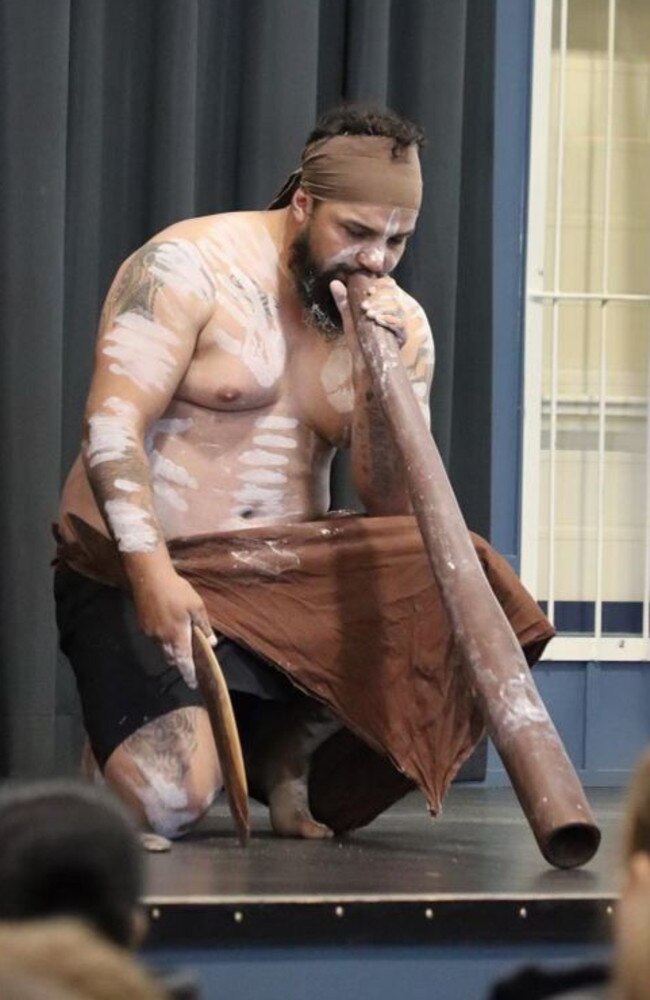
Cultural influencer and Wakka Wakka Kullilli man Damon Miri Anderson said to keep the fire burning was to pass it onto the next generation.
“We’ve got all of our children doing culture stuff now and we speak language at home,” he said.
“It’s about keeping the young fellows, keeping them going because they’re the ones next in line.”
Teaching and passing on culture to the next generation would make them all the more better for it, he said.
“Our parents weren’t allowed to do it (practice culture) and our grandparents weren’t allowed to do it and we’re privileged to have that platform where we can teach our kids cultural stuff,” he said.
Having also worked in the Bunya Mountains as a ranger, he said knew the impact fire has on country.
“I know the impact fire has on our culture as well, it tempers our wood, it makes it strong,” he said.
Whether or not Australia voted against a voice to parliament, Mr Anderson said what mattered most was if the kids are still learning.
“Back when my parents were growing up, and my grandparents were growing up, culture wasn’t accepted as much.”
He said more and more his culture was being accepted and seeing the next generation growing up learning dancing, language and performance was very important.
“That’s the main thing for me,” he said.
Joshua Waters
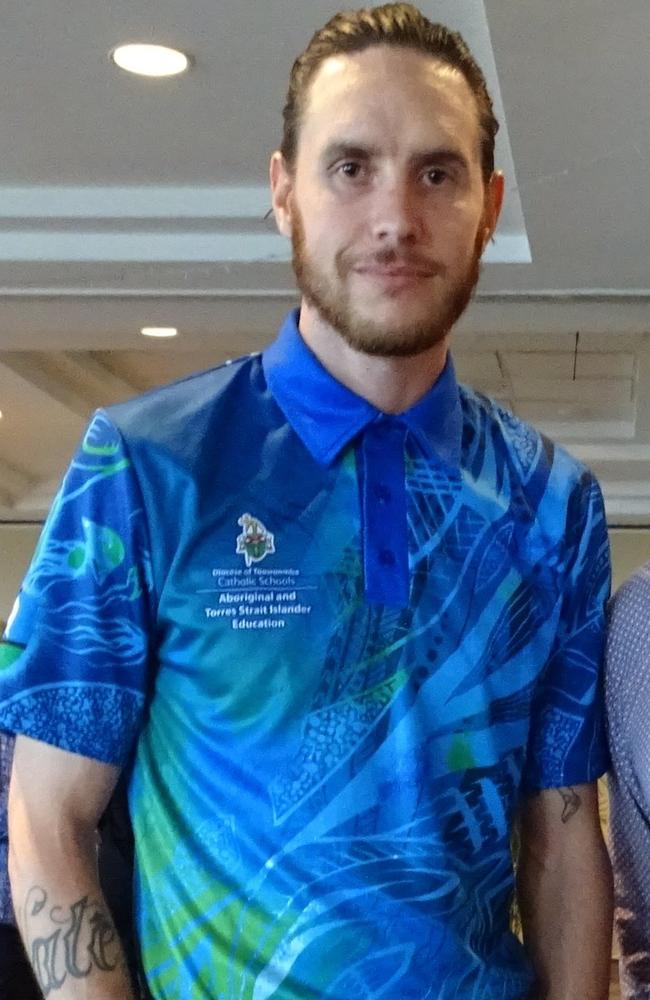
Deakin University senior research fellow Joshua Waters centres his work around Indigenous spirituality and land-based perspectives, and works alongside the Toowoomba educators to bring those perspectives into the education system.
In light of the historical mistreatment of Indigenous people in the past, the No vote from last year left a lot of people in the First Nations community reeling, Mr Waters said.
“For a long time, a lot of us in the community suspected that maybe people thought we didn’t deserve equity or rights, or for the bigger population to be accountable to some of those processes that have kept us marginalised for a long time,” he said.
Toowoomba also recorded some of the highest No votes in the 1967 Referendum which successfully removed references in the Australian Constitution that discriminated against Aboriginal and Torres Strait Islander people.
“Obviously things haven’t changed too much,” he said.
Despite this, he said there were positives, and that grew from not only the visibility of First Nations people, but also within their non-Indigenous allies.
“More people are willing to support First Nations people in their ventures towards becoming more recognised and having their world views more included in the social and political fabric of Australia,” he said.
“What comes next? There’s a lot of people who did vote no who did so because they said that it wasn’t enough, there was some people who said it was too much, there’s a lot of perspectives that we’re still trying to gather from across the spectrum.
“In the First Nations community context I think there’s a lot of people just searching and hoping that something will emerge out of that.”
Nichole Spackman
One positive change Toowoomba NAIDOC committee member Nichole Spackman saw was an increase in businesses willing to engage with First Nations’ communities.
“There’s definitely a group that has formed after the referendum that has still continued doing work for the community,” Ms Spackman said.
“There’s all these different faces that are coming through, particularly younger people,” she said.
The change was supportive, with more businesses seeking to reach out and find ways to support or contribute to the First Nations’ community here, she said.
“I do think there is a really positive change in the business mindset, and organisations are getting a lot better at recognising that if they need to work with First Nations’ peoples they need to actually be employing First Nations’ people,” she said.
That change has related into more businesses creating positions and vacancies specifically for First Nations people, she said.
This was a really positive change from last year’s referendum, where she also felt the damage from social media.
“More and more I say to people, don’t give it the air it deserves,” Ms Spackman said.
“There are some generations you might never change the mindset of.
“I hope that there’s a lot more opportunity for conversations.”



